
Is it okay to be a Nintendo fan again?
The problem with Nintendo fandom, generally, is that it’s an exclusive club of sorts. The people in the club won’t look outside the clubhouse no matter how much the sun is shining, and the heathens that do leave are seen as sellouts. And the perception of the other clubhouses? For an appropriate analogy, let me direct your attention to that little Protestant/Catholic skirmish that’s been happening in Ireland for a while now.
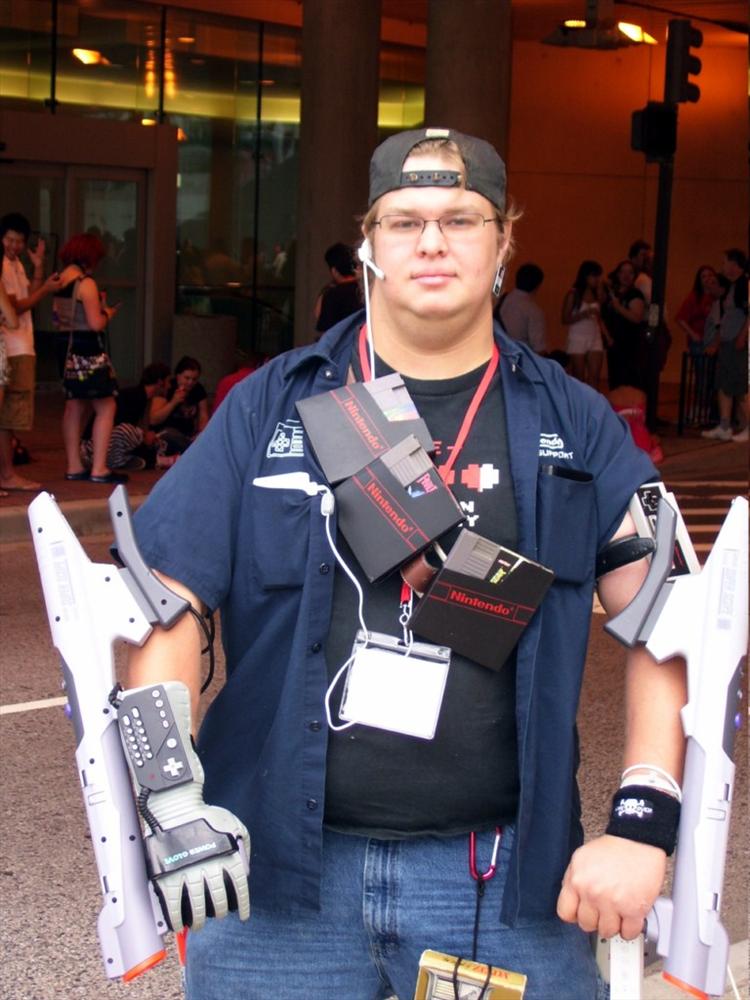
As a PC gamer first I’ve never technically been an official member of the club but let me tell you, Nintendo loyalty is practically a religion. Thankfully I went agnostic as it were a few years ago when my Guitar Hero habit required the purchase of a PS2, but as a former devotee I might be able to shed some light on recent perceptions of Nintendo and their products.
Let’s keep the religion analogy going for a bit here. For instance, do most members of a religion bother you? No, it’s just the really annoying ones, the die-hards, the campus preachers who tell you you’re going to hell Y for obscure reason X. Unfortunately the fire of Nintendo fans can be just as fierce, and considering that Nintendo has actively stoked those flames with fan outreach since the 80's, a lot of Nintendo fans are zealous.
This also means that gamers on the outside of the clubhouse, in the wider backyard of gaming, tend to resent the Nintendo zealots for their immaturity. This has a lot to do with Nintendo’s image as the Disney of video games. Aside from the obvious dearth of blood, swearing and sex in their software, Nintendo’s games rarely touch on the deeper, more serious subject matter that appeals to more adult tastes. A lot of this has to do with the genuinely lighthearted and childlike outlook of Shigeru Miyamoto, Nintendo’s guiding creative light for the last three decades. He just doesn’t do the angsty soul searching and ethics commentary of Kojima—it’s not his style. Regardless of recent gameplay innovations or depth, Nintendo is still perceived as kid stuff.
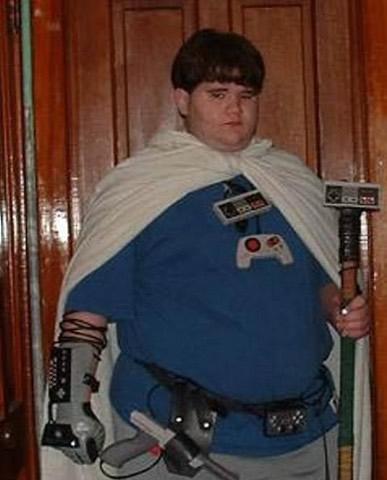
The Wii certainly hasn’t helped matters. Nintendo decided that after two generations of playing third fiddle to their ravenously competitive peers, they would tap the market that Microsoft and Sony were ignoring—baby boomers. This grew the industry in the burgeoning genre of casual gaming, spawning numerous titles that focused on simple yet quality core gameplay without the bursting production values of bigger titles. For a while it worked beautifully—the Wii was the hottest selling toy three years in a row and casual games flooded the marketplace.
But there were a couple key mistakes made in handling this new audience. First, many third party publishers and even Nintendo itself at times equated casual and simple with cheap and lazy. They ignored the hallmark of the great classic arcade games—simple yet well-made and thus addictive—and instead produced a torrent of cheaply-made and nearly identical collections of minigames. As I said, Nintendo is far from lily-white here; remember Wii Music and Animal Crossing City Folk? If those were merely mediocre, then you can imagine how bad the scads of third party clones were. Most of these games centered on flailing your arms wildly and didn’t use the Wii’s motion controls creatively. What’s more they were virtually indistinguishable from one another, at least to the casual audience. Exactly how many cooking games or sports collections do you really need?And that brings us to the second mistake: the assumption that casual gamers buy just as many games as established gamers. Once a casual gaming family has their Wii Sports, Cooking Mama, Guitar Hero and generic party minigame collection, they’re pretty much done buying. Sure something like Wii Fit might come along and initiate a another rash of purchases, followed swiftly by a frenzy of aftermarket imitations, but at most a typical casual family will buy only a handful of games every year. Publishers are only now starting to realize that spinning out a dozen bland fitness or party game collections annually is a huge waste of money. The law of averages does not work when you shotgun-feed a market with cheap, homogenous product. Put simply, the market has reached saturation.
The casual audience is also fickle. Sure, Grandma and her friends at the nursing home might cherish their Wii Bowling night with the grandkids, but Mom is already distracted by her much more convenient iPhone and the thousands of apps for it. Wii sales are petering out because its explosive success was a fad. Traditional game publishers, Nintendo included, just didn’t know how to respond to it because the gaming industry has never seen something quite like it before, outside of the runaway Atari 2600 bandwagon that led to the great crash of ‘83. The casual audience that publishers have been hammering with games for the past three years have already moved on to the latest shiny thing. We’re seeing something similar in the rapidly evaporating music game craze—five Guitar Hero or Rock Band games in one year leads to stagnation.
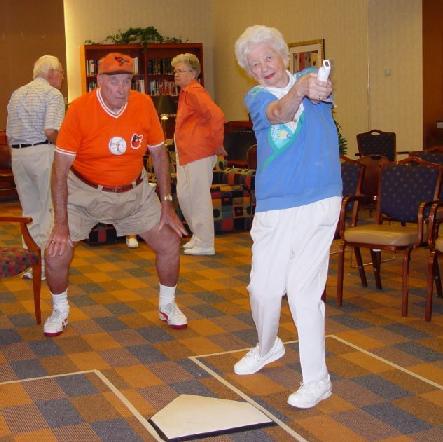
Amid all of this, some third party publishers did the math and realized that there were millions of Wii owners out there. Some of them had to be, well, regular gamers, right? They couldn’t all be grandparents and bored housewives, right? Right? Third parties have historically done much worse on Nintendo platforms when compared to the competition, but the Wii was apparently a totally different ball game. Who knew? Maybe the die-hard Nintendo fans, starved for product from their casually-preoccupied favorite company, would devour any traditional games served to them by third parties.
Unfortunately that didn’t exactly happen. Nintendo’s focus on casual gaming, mixed with the already healthy skepticism and resentment mainstream gamers built up for Nintendo over the sparse N64 and GameCube years, led most gamers to all but abandon the Wii. The Nintendo faithful hung on for a while, but when your own favorite company jilts you for the Cult of Oprah, you go out and buy a 360. In other words, the Wii is almost more barren for Nintendo fans than the GameCube was.
The Nintendo fan is a remarkably stubborn and consistent animal. The Nintendo fan buys the Nintendo console to play Nintendo games first, and everything else comes in at a distant second. When a new Starfox, F-Zero, Kid Icarus and Zelda weren’t forthcoming, many Nintendo faithful moved to the other platforms. The rest of the gaming public, happy with their “true” next gen consoles, shrugged at what they knew was (presumably) true all along: the Wii was just a cheap gimmick. Today they continue to ignore the console en masse.
And that’s a damn shame, because those third parties produced a lot of wonderful games that almost nobody played. Each console has their underappreciated gems, the greatest games that nobody played, but the Wii’s lack of HD and its gimmick-image resulted in a near-separate catalogue of these games.The collection of good third party titles on the Wii was made on a gamble for a gamer audience. There games are tentative stabs by multiple studios at finding those core gamers hidden within the ocean of casual owners. The Wii has one of the lengthiest libraries of unsung insta-classics, because almost the entire audience that would have been interested in these games had lost interest long before they even hit store shelves. Nobody gives a damn anymore because they’ve been burned, and third parties who were once serious about the Wii are throwing in the towel. I would too if I invested in something creative and original and got no return on it.
Thankfully, Nintendo is finally getting around to realizing this. They can see that the minigame crowd is leaving them in droves for the Apple camp, and that their own longtime fanbase is particularly displeased with them. Nintendo typically goes in peaks and valleys, but 2010 is arguably the Wii’s biggest year yet. After years of minigame slacking, they’ve woken up to the fact that they have to lead by example. This is a move borne of necessity—if Nintendo doesn’t step up and offer ALL of its customers something satisfying, Microsoft’s Natal and Sony’s PS3 Move will utterly bury Nintendo.
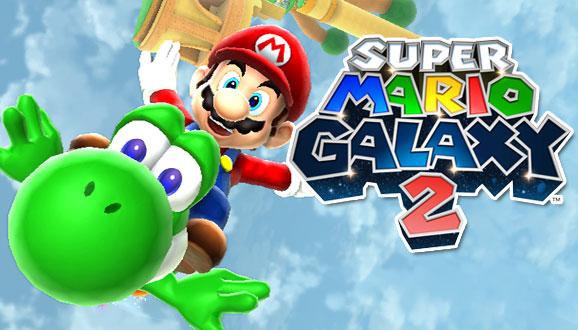
For the first time in recent memory, Nintendo will have their holy trinity all released in one year. Mario Galaxy 2 is coming in late May, followed in late August by Metroid Other M. For Nintendo, this is insane. Two huge titles like Mario and Metroid, within a few months of each other, has happened maybe once before in the history of Nintendo consoles. Packed in the middle somewhere is Sin and Punishment Star Successor, a sequel to one of the most imported, and later downloaded from the Virtual Console, N64 games.
Simply put, Nintendo doesn’t cram this much awesome into the span of one summer unless they have something huge planned for the later part of the year. There’s a real possibility that we’ll get both the 3DS and a new Legend of Zelda for the holidays. Those announcements will likely come with E3, and it’s still entirely possible—some might say probable—that the new Zelda will be delayed. Heck, multiple delays are practically a tradition for the Zelda series. But if Nintendo doesn’t have big holiday plans, why else would they bring out all their heavy hitters in the traditionally slow summer?
Not only does Nintendo have a lot planned, they finally understand that good third party business is very good for their own bottom line too. Reggile Fils Aime said as much in a recent IGN interview. I’m guessing Nintendo realized they should have done things differently earlier, been there for all the great third party titles that never got any attention. After all, they do get royalties from these publishers. Well, I say better late than never. The recent media summit indicates that Nintendo is a lot more serious about plugging third party software.
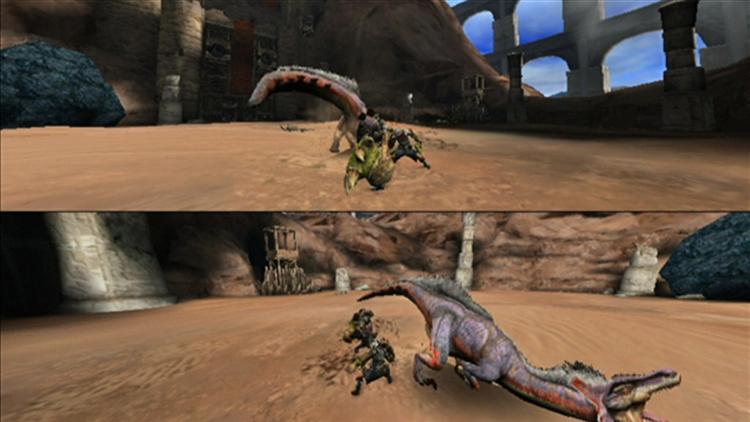
For instance, Monster Hunter Tri. The game is a hit in Japan, and Nintendo is actually putting forth the effort to make that success carry over to the US. It’s kind of strange to see but Nintendo’s been hyping this Capcom-published game for months, just like they did with Tatsunoko vs. Capcom. Arriving in April, Tri will have a bundle that includes the new Classic Controller Pro—you don’t get a stronger show of support than debuting a first party peripheral with a third party game. It would be ironic, but maybe the long-running Monster Hunter series will see its first breakout success stateside courtesy of the Wii, not a Playstation.
Prince of Persia: The Forgotten Sands got special mention at the summit as well. The Wii is getting its very own build of the title, with different mechanics and a separate story than that of its HD counterparts. “Built exclusively for the Wii” is usually a disparagement, indicating lower tech and less effort. But this time Nintendo and Ubisoft are treating it like a positive—Forgotten Sands on Wii is the real deal, developed by a separate team. Instead of giving the Wii a watered down port or skipping over it entirely, Ubisoft put forth the effort to give Wii owners something special. To get the whole picture you’ll have to play the Wii version and the 360 or PS3 one as well; as a longtime PoP fan, I’m certainly looking forward to parkouring my way through both.Not at the summit but name-dropped by Nintendo are Arc Rise Fantasia and Fragile Dreams. Both are decidedly unique takes on the RPG formula, and while I’m not the hugest fan of the genre, I admit they fill the nagging JRPG-shaped hole in the Wii’s library, and in a way you won’t see on other consoles.
Then, of course, there is Red Steel 2. This is Ubisoft’s love letter to the long suffering Wii faithful, the exclusive the die-hards have been waiting for. While the original was an ambitious game marred by the all too common launch title difficulties of hardware unfamiliarity and time constraints, the sequel is a completely different animal, set to birth a new hybrid genre on the console. Is it a shooter? An adventure game? A first person, err, slasher? I’m not entirely sure and I don’t really care; all I know is Red Steel 2 is fantastic.
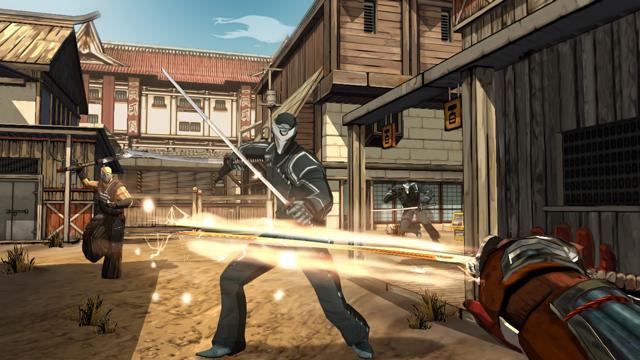
What’s more, this game is the only one that delivers on the promise of Wii MotionPlus in a significant way. Say what you will about Tiger Woods PGA 10 or Wii Sports Resort, Red Steel 2 is the game that makes MotionPlus worthwhile. Red Steel 2 could not exist without the add-on and the developers know this well. They’ve spent the last year and a half using it to its fullest extent, focusing on making the most satisfying and fun experience they can come up with, and the big payoff is finally here.
Rounding out 2010’s first half is Trauma Team from Atlus. This game’s goal is nothing less than the reinvention of the classic series that began its residency on the DS. To do this, Atlus is pushing the boundaries of the series farther than ever. Realism is the name of the game now, with an emphasis on more medically accurate ailments and treatments. Trauma Team is aptly named—it encompasses the entire spectrum of treatment with six medical fields. Some will be familiar; we’ll have emergency room surgery, and a more in-depth look at fields that the series has touched on previously, like orthopedics.
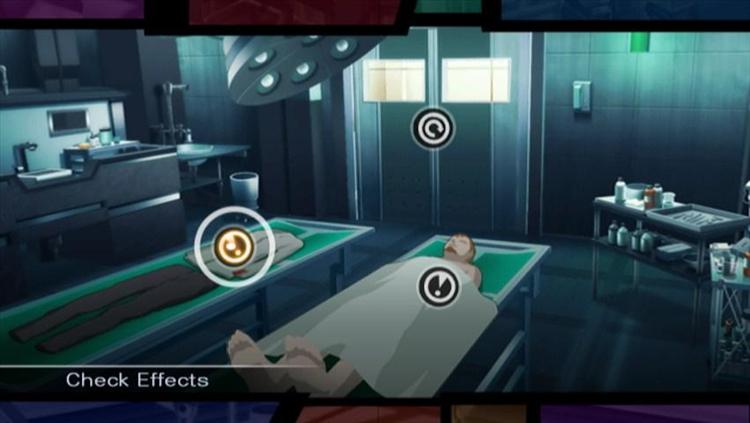
But then there are completely new additions to the Trauma Center formula. Endoscopy takes the series in a much more 3D-oriented direction, diagnostics brings a greater “House MD” influence that the fans have been asking for, and from what I’ve seen, the forensics track is a robust visual adventure that could stand on its own alongside the likes of Phoenix Wright and Hotel Dusk. I’m particularly interested in the first response track; I have some friends who are former EMTs, and from the stories they tell I’ve always thought the field would add a fascinating new dimension to Trauma Center. Unfortunately fans will have to wait a little longer for this one—it launches May 18th, a few days before Mario Galaxy 2. I guarantee the wait will be worth it, though.
Of special note is a curious little game that Nintendo hasn’t mentioned, but I feel deserves some recognition: Rock of the Dead. It falls into the well-worn zombie rail shooter genre, but has a Typing of the Dead-style twist. Instead of shooting or even typing the zombies to death, you slay them with killer licks played on a guitar controller. By now everybody has one or two of the plastic instruments left over from the dying music game craze, slowly getting dusty in living rooms across America, and developer Epicenter has struck on the perfect way to get more use out of those old guitar shells. I have no idea if Rock of the Dead will be a good game—there’s precious little info on it right now—but the idea is just so original and yet so obvious when you think about it that I have to give Epicenter credit for hitting upon it. As the developer behind the modest cult hit Real Heroes Firefighter, I have faith that Rock of the Dead will turn out well.All in all 2010 has a hefty first half in console releases, but don’t discount the downloadable titles. WiiWare is finally coming into its own with stuff like indie classic Cave Story, the intriguing topsy-turvy And Yet it Moves, and the devilishly original Super Meat Boy. One thing’s for sure: I’ll be flat broke by summer’s end.
For Nintendo fans 2010 is their best year in recent memory, certainly the best year the Wii has seen since it launched. But I really think that’s beside the point. For a gamer who loves games, period, this is probably the best year to own a Wii so far.
Is it okay to be a Nintendo fan again? Yes, I think it is, at least it is fashionable again. But I think the larger issue is what “Nintendo fan” has come to mean—it’s a divisive, pejorative term that carries a lot of baggage and it needs to be updated or done away with completely. The real issue is if someone can enjoy both Mario Kart and Master Chief without being stamped with this label.
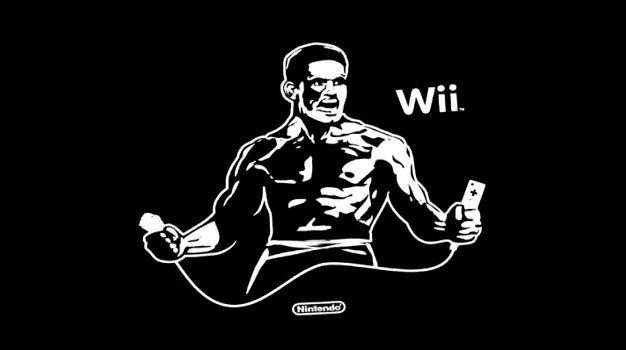
You don’t have to be a Nintendo fan to enjoy titles on the Wii, you just have to love good games. Once gamers stop dismissing the Wii as a transient fad it will cease to be one. Yes, there are things it can’t do. It is drastically underpowered compared to its HD peers and Nintendo’s online service admittedly sucks.
But that doesn’t mean you should write the Wii off without a second glance. I know a lot of people have been burned and it’s easy to stay bitter, but in the long run you’re only hurting yourself. When an obscure, traditional or creative game comes out for the Wii, look into it. Don’t just read the big reviews, listen to the word of mouth too. Buy games for the Wii and enjoy them for what they are—quirky, original and often good ideas you’d never seen on the 360 or PS3. The console’s hardware limitations often force developers to think outside the box.
To make another analogy, you didn’t have to be a Sega fan to love the Dreamcast. Sure it really helped, but the truth is the Dreamcast wasn’t just a Sonic vehicle. It was a gamer’s machine, with software made with gamers in mind.
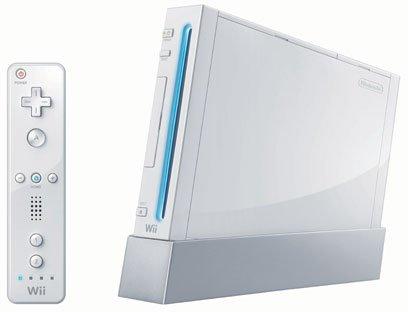
The Wii is turning into a Dreamcast of sorts—an underpowered, contemporarily underappreciated console that still has a lot of potential, a platform where talented developers deliver some of their best work, only to be snubbed by the gaming public at large because the platform has a bad image. But the Wii isn’t losing a race to its competitors; it is meeting a far worse fate than burning out hot and fast. Dropped by the casuals that fueled its meteoric rise and written off by anyone who might actually care about its games, the Wii is drowning in mediocrity and three years’ accumulated bad press.
Well it’s time for that to change, and Nintendo gets this. Listen up Nintendo diehards: it’s okay to play third party games! Mr. Miyamoto says so! Reggie does too, and you’d better do what he says! Stop shying away from the good stuff just because it doesn’t have Mario or Link on the cover. Do what sensible PS3 and 360 owners do with their favorite consoles: treat your Wii as a game machine for playing games, not just an exclusive portal to Nintendo fun land. You’ll thank me later.As for all the core gamers who let their Wii collect dust out of a sense of pride? Come on, grow up. If you still own a Wii, you might as well use it. Your 360 or PS3 has an amazing year ahead of it, but so does your Nintendo console. You’ll be missing out on a lot if you hold to the “Wii is a gimmick for kids” party line of the Microsoft and Sony fanboys. If you’re a serious gamer, then you’re already bigger than that forum flame-war nonsense.
And while you’re waiting for this year’s titles, go back and play all the games you’ve missed. Play De Blob, Deadly Creatures and Mushroom Men. Seek out underappreciated gems like Zack and Wiki, Ghost Squad and for crying out loud, freaking Okami. If you feel like something more mature, Madworld is one of the most ridiculous, darkly humorous games of this generation. Both No More Heroes games take self-referential satire to a new level, riffing the far corners of gaming, anime and action movie fandom through gratuitous violence, crude but bitingly dry humor and plentiful throwbacks to the 8-bit glory days. You think GTA pushes buttons? Try House of the Dead Overkill. Enjoy scifi horror? It doesn’t get better than Dead Space Extraction. Hell, the Wii has single-handedly resurrected the lightgun genre—when was the last time you saw so many gun peripherals for a console?
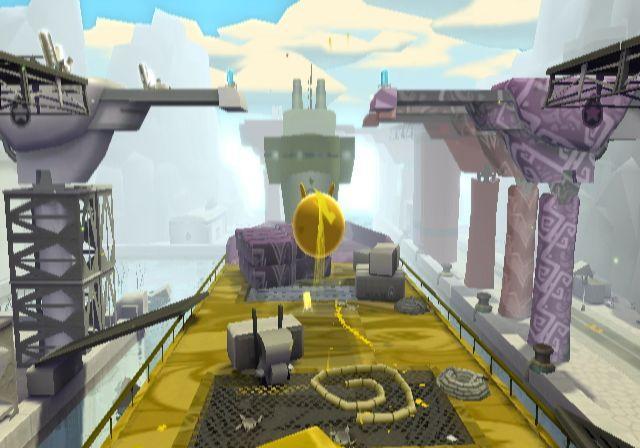
My point is, let’s break down those fandom barriers. Being a fandom recluse is only doing yourself a disservice; there are too many good things coming down the pike. Do what I do: treat gaming as an inclusive hobby, not a collection of fanclubs and images to maintain. As an owner of two current gen consoles, I’ve had access to a huge selection of great games for years now. Sure, the Wii has had some nasty dry spells, but I also have a 360; this lets me appreciate the Wii when it has good games, and my 360 makes sure I don’t go hungry in the lean times. Trust me, the WiiS3 and Wii60 camps have it the best. And the times are getting much, much better for everyone.
I’m not telling anyone to stop being a Sony fan, or a Sega or Microsoft fan, or even a Nintendo fan. I’ll always be a Nintendo fan at heart. But you should be a video game fan first and foremost. Now relax, and enjoy your freaking hobby.
* The product in this article was sent to us by the developer/company.

About Author
I've been gaming off and on since I was about three, starting with Star Raiders on the Atari 800 computer. As a kid I played mostly on PC--Doom, Duke Nukem, Dark Forces--but enjoyed the 16-bit console wars vicariously during sleepovers and hangouts with my school friends. In 1997 GoldenEye 007 and the N64 brought me back into the console scene and I've played and owned a wide variety of platforms since, although I still have an affection for Nintendo and Sega.
I started writing for Gaming Nexus back in mid-2005, right before the 7th console generation hit. Since then I've focused mostly on the PC and Nintendo scenes but I also play regularly on Sony and Microsoft consoles. My favorite series include Metroid, Deus Ex, Zelda, Metal Gear and Far Cry. I'm also something of an amateur retro collector. I currently live in Westerville, Ohio with my wife and our cat, who sits so close to the TV I'd swear she loves Zelda more than we do. We are expecting our first child, who will receive a thorough education in the classics.
View Profile